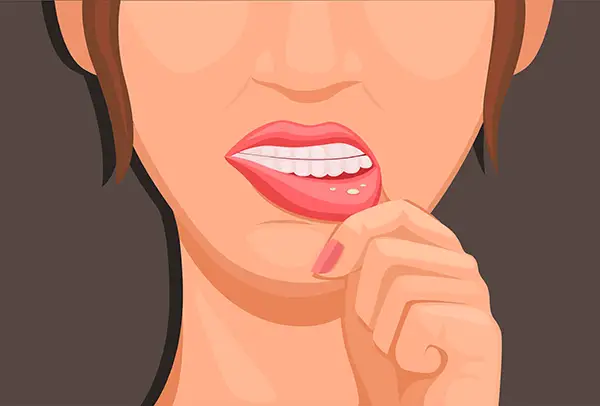What's the Difference Between Canker Sores and Cold Sores?
Posted on 8/1/2025 by East Village Dental Centre |
 Have you ever experienced a small, painful ulcer inside your mouth? You're not alone! Many people experience these sores, which can be uncomfortable and make it difficult to eat or talk. But even though these sores might look similar, they can have different causes and require different treatments. Have you ever experienced a small, painful ulcer inside your mouth? You're not alone! Many people experience these sores, which can be uncomfortable and make it difficult to eat or talk. But even though these sores might look similar, they can have different causes and require different treatments.
Canker sores and cold sores are two of the most common types of mouth sores. While they may appear similar, they have distinct characteristics and require different approaches to management.
Canker Sores
Also known as aphthous ulcers, canker sores are small, round, or oval sores that develop on the soft tissues inside the mouth, including the tongue, gums, and insides of the cheeks and lips. They are typically white or yellow in the center with a red border. Canker sores can range in size and can be quite painful, making it difficult to eat or talk.
The exact cause of canker sores is unknown, but several factors may play a role, including:
| • |
Stress |
| • |
Injury to the mouth |
| • |
Certain foods, such as acidic fruits and vegetables |
| • |
Vitamin deficiencies |
| • |
Hormonal changes |
| • |
Weakened immune system |
Most canker sores heal on their own within one to two weeks. However, there are some things you can do to help manage the pain and discomfort, such as:
| • |
Over-the-counter pain relievers |
| • |
Numbing gels |
| • |
Warm salt-water rinses |
| • |
Avoiding irritating foods and drinks |
If your canker sores are severe, persistent, or do not respond to home care, it is important to see a dentist or doctor to rule out other underlying conditions.
Cold Sores
Cold sores, also known as fever blisters, are small, fluid-filled blisters that develop on the lips and around the mouth. They are caused by the herpes simplex virus (HSV), which is highly contagious. Cold sores typically start as a tingling or burning sensation, followed by the development of small blisters that rupture and form crusts. Cold sores can be painful and unsightly, and they may last for up to two weeks.
There is no cure for HSV, but there are antiviral medications that can help shorten the duration and severity of outbreaks. These medications are most effective if taken at the first sign of an outbreak.
To prevent the spread of cold sores, it is important to avoid close contact with others while you have a sore. You should also wash your hands frequently and avoid sharing personal items such as utensils and lip balm.
Key Differences
Although canker sores and cold sores can appear similar, there are some key differences between them:
| • |
Cause: Canker sores are caused by a variety of factors, while cold sores are caused by the herpes simplex virus. |
| • |
Location: Canker sores typically occur inside the mouth, while cold sores occur on the lips and around the mouth. |
| • |
Appearance: Canker sores are typically white or yellow with a red border, while cold sores are fluid-filled blisters. |
| • |
Contagiousness: Canker sores are not contagious, while cold sores are highly contagious. |
| • |
Treatment: Canker sores usually heal on their own, while cold sores may require antiviral medication. |
When to See a Dentist
If you have any concerns about mouth sores, it is always best to consult with a dentist. They can help diagnose the cause of the sore and recommend the best course of treatment.
In addition, it is important to see a dentist if your mouth sores are:
| • |
Severe or persistent |
| • |
Not responding to home care |
| • |
Accompanied by other symptoms, such as fever or swollen lymph nodes |
By understanding the differences between canker sores and cold sores, you can take steps to prevent and manage these common conditions. Remember, if you have any questions or concerns, do not hesitate to speak to your dentist.
|
|